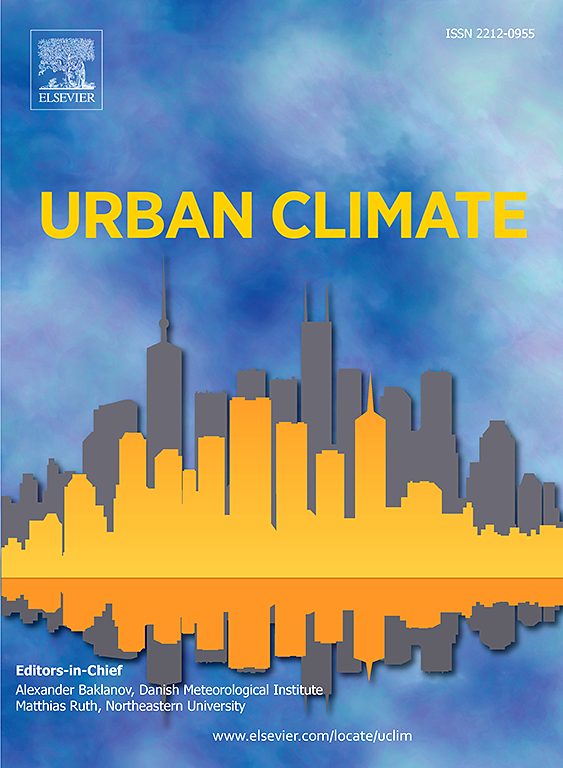气候变化适应:土耳其城市当地气候变化行动计划中缺失的部分
IF 6
2区 工程技术
Q1 ENVIRONMENTAL SCIENCES
引用次数: 0
摘要
适应气候变化对城市抗灾能力至关重要,尤其是在易受极端天气影响的发展中国家。在土耳其,尽管缺乏法律授权,但拥有80%人口的大城市自愿制定了《地方气候变化行动计划》(lccap),以应对缓解和适应挑战。本研究的目的是对土耳其各大城市编制的LCCAP类型进行分类,评估其适应性组成部分,并评估其与国家政策的一致性,同时提供政策建议。调查结果表明,30个城市中有23个制定了国家可持续能源和气候行动计划,其中18个城市将国家可持续能源和气候行动计划作为可持续能源和气候行动计划制定,其中包括减缓和适应行动。使用阿特拉斯。在软件方面,适应行动分为15个部门,其中水管理、灾害风险管理、绿地和基础设施最为突出。该研究强调,人们越来越依赖基于自然的解决方案来应对洪水和热浪风险。虽然国际网络成员影响了LCCAP的目标,但在处理弱势群体方面仍然存在差距。此外,18个安全援助计划中有11个由市政资源提供资金,显示出当地的坚定承诺。研究结果强调需要改进机构协调、脆弱性评估数据和适应监测系统。加强城市气候政策中的适应行动对土耳其的复原力至关重要。本文章由计算机程序翻译,如有差异,请以英文原文为准。
Climate change adaptation: The missing component in the local climate change action plans of Turkish metropolitan municipalities
Climate change adaptation is crucial for urban resilience, particularly in developing countries vulnerable to extreme weather. In Turkey, metropolitan municipalities, housing 80 % of the population, have voluntarily developed Local Climate Change Action Plans (LCCAPs) to address mitigation and adaptation challenges, despite the lack of a legal mandate. This study aims to classify the LCCAP types prepared by Turkish metropolitan municipalities, assess their adaptation components, and evaluate their alignment with national policies while offering policy recommendations. The findings show that 23 out of 30 municipalities prepared NCCAPs, and 18 of these municipalities developed their NCCAPs as Sustainable Energy and Climate Action Plans (SECAPs), which include both mitigation and adaptation actions. Using ATLAS.ti software, adaptation actions were categorized into 15 sectors, with water management, disaster risk management, green spaces, and infrastructure being most prominent. The study highlights a growing reliance on nature-based solutions for addressing flood and heatwave risks. While international network memberships influence LCCAP targets, a gap remains in addressing vulnerable groups. Additionally, 11 of the 18 SECAPs were funded by municipal resources, showing strong local commitment. The findings emphasize the need for improved institutional coordination, data for vulnerability assessments, and monitoring systems for adaptation. Strengthening adaptation actions in urban climate policies is vital for resilience in Turkey.
求助全文
通过发布文献求助,成功后即可免费获取论文全文。
去求助
来源期刊

Urban Climate
Social Sciences-Urban Studies
CiteScore
9.70
自引率
9.40%
发文量
286
期刊介绍:
Urban Climate serves the scientific and decision making communities with the publication of research on theory, science and applications relevant to understanding urban climatic conditions and change in relation to their geography and to demographic, socioeconomic, institutional, technological and environmental dynamics and global change. Targeted towards both disciplinary and interdisciplinary audiences, this journal publishes original research papers, comprehensive review articles, book reviews, and short communications on topics including, but not limited to, the following:
Urban meteorology and climate[...]
Urban environmental pollution[...]
Adaptation to global change[...]
Urban economic and social issues[...]
Research Approaches[...]
 求助内容:
求助内容: 应助结果提醒方式:
应助结果提醒方式:


